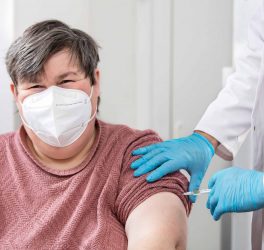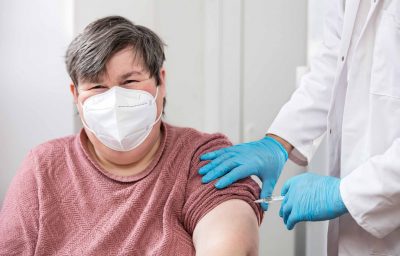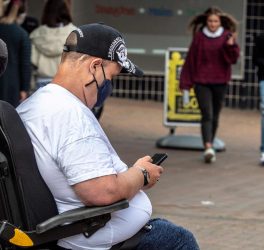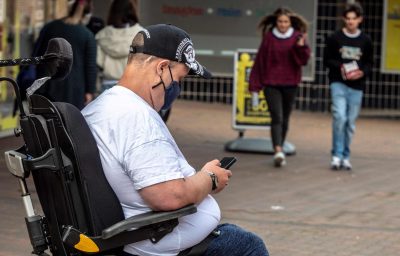
A recent commentary piece, authored by five psychologists from across the United States, calls for health care providers to advocate for the rights of patients with disabilities during the COVID-19 pandemic.
The authors explain that people with disabilities not only have increased vulnerability to exposure of, and complications from, the COVID-19 virus, but concerns in accessing proper treatment for the virus and the decision-making behind medical rationing.
“While we hope that care options for COVID-19, such as mechanical ventilators and intensive care unit beds, will not have to be rationed, there has certainly already been concerns during the pandemic of a shortage in some lifesaving equipment,” says Carrie Pilarski, Ph.D., a clinical psychologist and assistant professor of physical medicine and rehabilitation at Michigan Medicine, and an author of the commentary. “This is increasingly concerning for the disability community in that, would they be overlooked for treatments if it came down to medical rationing?”
Pilarski and her fellow authors discuss perceptions people may have of the disability community, and explain medical rationing and offer approaches for prioritizing patients.
“People may not realize that medical rationing already happens, such as organ transplantation and who is eligible,” Pilarski says. “We explain the different methods that can be used in medical rationing, and how the most important element in any method chosen is transparency. There needs to be transparency in decision-making, ability for appeals and procedures in place for revising decisions.”
The authors also encourage health care providers, specifically their fellow psychologists, to advocate for social justice for people with disabilities during the pandemic, and in health care settings in general.
“Health care providers should call for transparency in pandemic preparedness plans and medical rationing approaches,” Pilarski says. “Disabilities are a part of diversity, and not an indicator if someone should or should not receive lifesaving treatment.”






